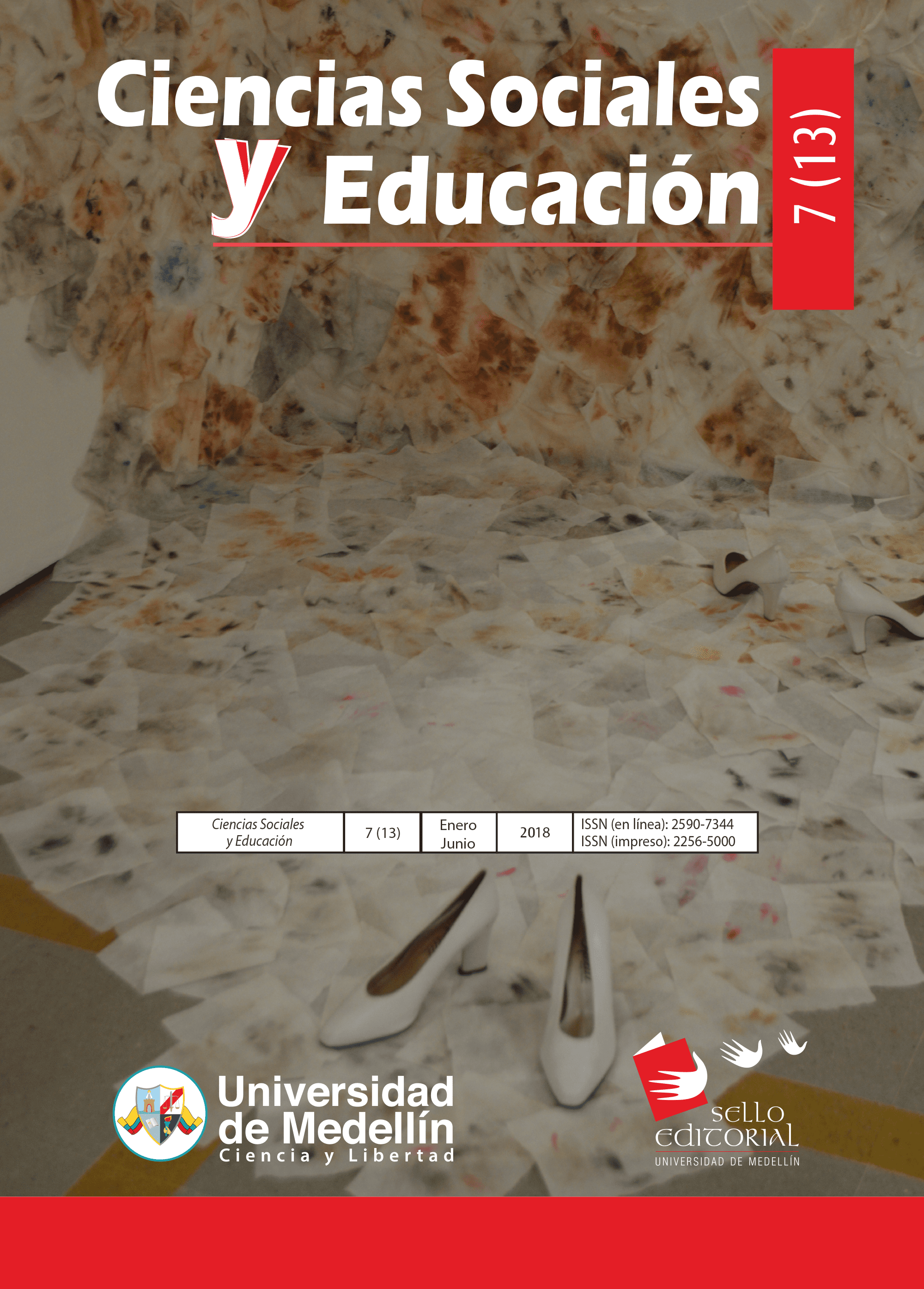Theatrical Writing. The Blind: A Symbolist Tragedy
Main Article Content
Abstract
In the present text, I present The blind by Maurice Maeterlink as a 'Greek tragedy'. In dramatic terms, it presents the languor and existential faintness of men, the helplessness and orphanage in which he finds himself before an incomprehensible, depressive and dark design. Arguments are based on the importance that Nietzsche assigns to the choir, as an Apollonian role to make suffering explicit. Likewise, I propose that Maeterlinck does not hesitate to make a great chorus of this piece that proclaims the truth of the world, one of 'the frightful and absurd of being'.
Keywords:
How to Cite
Sánchez Vanegas, M. (2018). Theatrical Writing. The Blind: A Symbolist Tragedy. Ciencias Sociales Y Educación, 7(13), 133–143. https://doi.org/10.22395/csye.v7n13a6
Article Details
References
Dubatti, J. (2009). Concepciones de teatro. Poéticas teatrales y bases epistemológicas. Buenos Aires: Colihue.
García Lorca, F. (1998). Impresiones y paisajes. Madrid. España: Colección Cátedra. Letras Hispánicas.
Gombrich, E. H. (2006). The Essential Gombrich. Tailandia: Ed. Phaidon.
Lehmann, H. T. (2013). Teatro Posdramático. México: Cendeac.
Lesky, A. (2001). La tragedia griega. España: Ed. Acantilado.
Maeterlinck, M. (2003) La tragedia cotidiana. Gaceta, universidad veracruzana (67-69). Recuperado de https://bit.ly/2TbElbF
Maeterlinck, M. (2009). La intrusa, Los ciegos, Pelleas y Melisande, El pájaro azul. Madrid: Ed. Cátedra.
Meyerhold, V. (2013). Teoría teatral: historia y técnica del teatro. Madrid: Ed. Fundamentos.
Nietzsche, F. (1977). El nacimiento de la tragedia (A. Sánchez Pascual, trad.). Madrid: Alianza.
Saramago, J. (1999). Ensayo sobre la ceguera. Madrid: Ediciones Alfaguara.
Schmidt, A M. (1960). La Literatura simbolista. Buenos Aires: Eudeba.
Schopenhauer, A. (1960). El mundo como voluntad y representación, vol. II. Madrid-Buenos Aires-México: Ed. Fondo Cultura Económica.
Szondi, P. (2011). Teoría del drama moderno (1880-1950) Tentativa sobre lo trágico. Madrid: Clásicos Dykinson.
García Lorca, F. (1998). Impresiones y paisajes. Madrid. España: Colección Cátedra. Letras Hispánicas.
Gombrich, E. H. (2006). The Essential Gombrich. Tailandia: Ed. Phaidon.
Lehmann, H. T. (2013). Teatro Posdramático. México: Cendeac.
Lesky, A. (2001). La tragedia griega. España: Ed. Acantilado.
Maeterlinck, M. (2003) La tragedia cotidiana. Gaceta, universidad veracruzana (67-69). Recuperado de https://bit.ly/2TbElbF
Maeterlinck, M. (2009). La intrusa, Los ciegos, Pelleas y Melisande, El pájaro azul. Madrid: Ed. Cátedra.
Meyerhold, V. (2013). Teoría teatral: historia y técnica del teatro. Madrid: Ed. Fundamentos.
Nietzsche, F. (1977). El nacimiento de la tragedia (A. Sánchez Pascual, trad.). Madrid: Alianza.
Saramago, J. (1999). Ensayo sobre la ceguera. Madrid: Ediciones Alfaguara.
Schmidt, A M. (1960). La Literatura simbolista. Buenos Aires: Eudeba.
Schopenhauer, A. (1960). El mundo como voluntad y representación, vol. II. Madrid-Buenos Aires-México: Ed. Fondo Cultura Económica.
Szondi, P. (2011). Teoría del drama moderno (1880-1950) Tentativa sobre lo trágico. Madrid: Clásicos Dykinson.





